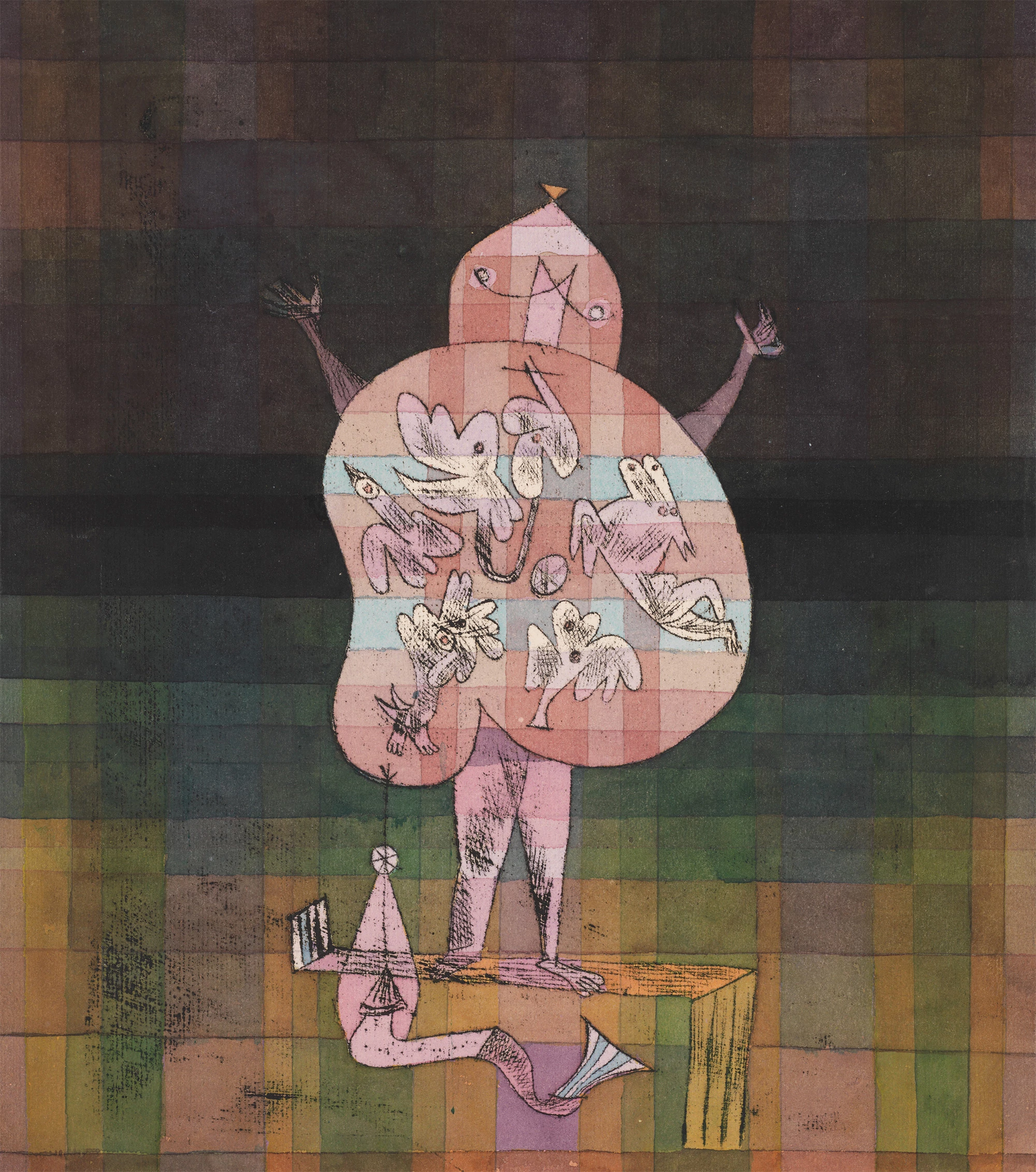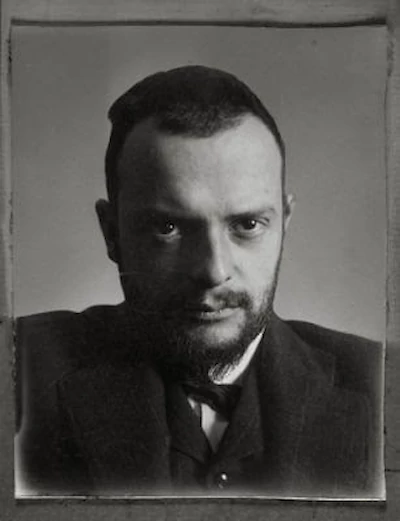

Paul Klee
"A long struggle lies in store for me in this field of color"
1879 – 1940We construct and keep on constructing, yet intuition is still a good thing. You can do a good deal without it, but not everything. Where intuition is combined with exact research it speeds up the progress of research. Exactitude winged by intuition is at times best. But because exact research is exact research, it gets ahead even without intuition though perhaps not very quickly. In principle it can do without intuition. It can be logical; it can construct. It can build bridges boldly from one thing to another. It can maintain order in the midst of turmoil.
In art, too, there is room enough for exact research, and the gates have been open now for quite some time. What was accomplished in music before the end of the eighteenth century has hardly been begun in the pictorial field. Mathematics and physics provide a lever in the form of rules to be observed or contradicted. They compel us - a salutary necessity - to concern ourselves first with the function and not with the finished form. Algebraic, geometrical, and mechanical problems are steps in our education towards the essential, towards the functional as opposed to the impressional. We learn to see what flows beneath, we learn the prehistory of the visible. We learn to dig deep and to lay bare. To explain, to analyze.
We learn to look down on formalism and to avoid taking over finished products. We learn the very special kind of progress that leads towards a critical striving backward, towards the earlier on which the later grows. We learn to get up early to familiarize ourselves with the course of history. We learn cogent truths on the way from causes to facts. We learn to digest. We learn to organize movement through logical relations. We learn logic. We learn organism. As a result the tension between us and the finished product eases. Nothing exaggerated - tension inside, behind, underneath. Passionate only deep within. Inwardness.
All this is fine but it has its limits: intuition remains indispensable. We document, explain, justify, construct, organize: these are good things, but we do not succeed in coming to the whole. We have worked hard: but genius is not hard work, despite-the proverb. Genius is not even partly hard work, as might be claimed on the ground that geniuses have worked hard, in spite of their genius. Genius is genius, grace; it is without beginning and end. It is creation. Genius cannot be taught, because it is not a norm but an exception. It is hard to reckon with the unexpected. And yet as leader it is always far ahead. It bursts ahead in the same direction or in another direction. This very day, perhaps, it is already in a place we seldom think of. For from the standpoint of dogma, genius is often a heretic. It has no law other than itself.
The school had best keep quiet about genius; it had best keep a respectful distance. The school had best lock up the secret and guard it well. For if this secret were to emerge from latency, it might ask illogical and foolish questions.
It would stir up a revolution. Surprise and perplexity. Indignation and expulsion. Out with the total synthetist! Out with the totaliser! We’re against! And the insults would fall like hail: Romanticism! Cosmicism! Mysticism! In the end we should have to call in a philosopher, a magician! Or the great dead, who are dead? We should have to hold classes on holidays outside the school. Out under the trees, with the animals, by the side of brooks. Or on the mountains in the sea.
We should have to give assignments such as: construction of the secret. Sancta ratio chaotica! Scholastic and ridiculous. And yet that would be the assignment if construction accounted for everything.
But we may as well calm down: construction is not absolute. Our virtue is this: by cultivating the exact we have laid the foundations for a science of art, including the unknown X, making a virtue of necessity.
Irregularity means greater freedom without transgressing the law.
The conflict between universal and restricted application. The partial choice has expressed itself as an absolute structure (omission of the universal) or as a relative structure. Accented, but at the same time susceptible of being measured by the law which forms a part of it.
All figuration relates the general to the particular. It is more personal or less, according to the nature of the relation.
But if the priests ask sternly: ‘What is this shocking anomaly you are producing?’ - the absolute structure makes it possible to prove after the fact that the law has been observed, while the relative structure includes the proof, rejects the question, and makes the proof unnecessary. Thus the absolute is more free in its gesture, but not in its essence. Many things are free without showing it; others are free only in a very limited sense but present a free appearance in the freedom of this gesture.
— First published in ‘Bauhaus, Vierteijahrzeitschrift fur Gestaltung vol.2, No.2’ in 1928.